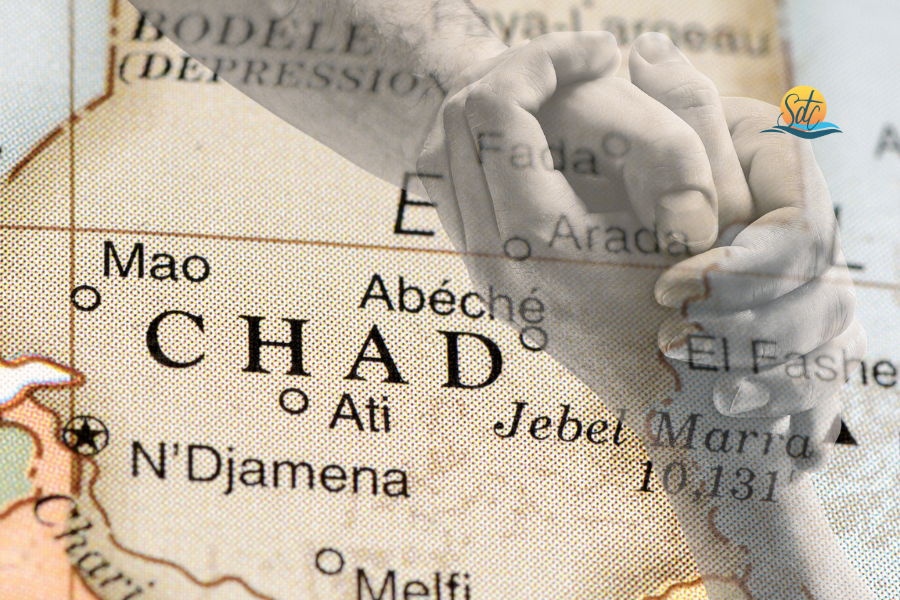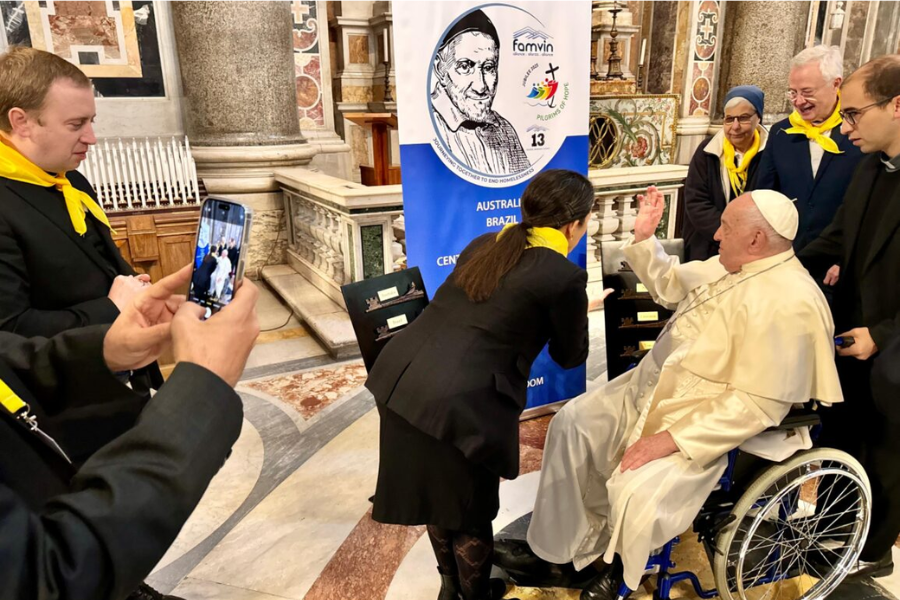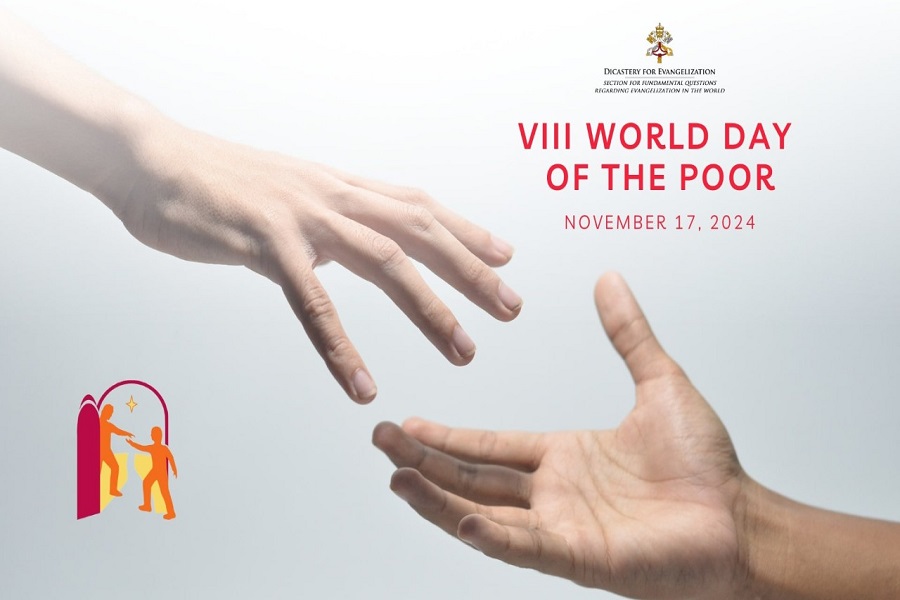For shared faith, the struggle for land ownership, the alternative to the underworld. This has been the daily commitment for 30 years that the Sisters of Charity and the Claretian Fathers have been living, sharing the struggles and sufferings of the parish community of St John the Baptist in Lambaré. And trying to offer concrete alternatives to the underworld, to drug dealing, to micro-violence, for a more dignified life.
The Sisters of Charity accompany the service of the Santa Juana Antida Centre, together with several volunteers and the community of the Claretian Fathers.
The service consists of the attention to children and the elderly of one of the most impoverished areas of the Parish known as Pantanal and is located in the middle of three settlements: Villa Angelica, San Jose and Arapoty.
The community is historically marked by the struggle for land tenure, arising from the taking of land by people coming mainly from the rural areas of the country and that at the end of the dictatorship period (1989) migrated to the urban area seeking greater welfare and dignity for their children, all this generated a great impact on

their lifestyles: From enjoying nature and the work of the land, beyond poverty and isolation to finding another type of precariousness marked by discrimination, violence, drugs and the forest of waste of a consumerist society.

The vast majority of the inhabitants ended up working in the recycling of rubbish (which is often a front for the real business) and in the micro-trafficking of drugs; the area is recognised by the police authorities as one of the distribution centres of micro-trafficking for the Greater Asunción area, and where various factions of drug traffickers operate, especially one, as well as the fact that these groups use children between 12 and 13 years of age for the distribution of drugs.
All this reality of waste and drug contamination is openly shown in the neighbourhood, in the streets, in the squares; the children are exposed to see, to experience this situation even in their own homes, and in many cases they come to naturalise this reality without being able to see that it is possible to live in a different way.
The Sisters of Charity together with the Claretian Fathers have sought to accompany the community in all its struggles and pains to live more dignified lives.
For 30 years, the Santa Juana Antida Centre was born with the desire of closeness, dignity and care for the two extremes of life: the children and the elderly. Not from the direct confrontation of all the ailments expressed beforehand, but from that life that we want to take care of, sowing the small seeds of hope from everyday life, because we believe that this seed of hope, of the gospel has a transforming power that is capable of being long-lasting. This is how the Santa Joana Antida Centre offers the children of the community a safe space to develop their potential through games, dance, sports, academic activities, shared meals; the elderly are offered lunch with others, where they can share their day, helping them to carry out some social and health care activities.
Prayer for the poor and with the poor
2024 at the Santa Juana Antida Centre and in families
This Year of Prayer the children of the Centre have taken on the commitment, since the vocational month (May), to pray every day in the Chapel of Santa Juana, in this space they learn to pray the rosary, to listen to the Word, to discover God present in small things, and to place their lives in the hands of the one who loves them and accompanies them at all times, they have been faithful in this commitment and when the situation in the neighbourhood was aggravated by raids by the police.
When the situation in the neighbourhood was aggravated by raids by the police, confrontations between neighbours and the police and the subsequent power struggles of the micro-traffickers, they went out into the street and held a community prayer among the families, priests and sisters as a sign of communion to express this desire for peace for all, with the confidence that God hears the prayers of the little ones, that He is present in the midst of the pain and concern of His people and is capable of transforming hearts and giving them the strength to continue and to walk with hope.

As Pope Francis says: ‘Prayer transforms us: it pacifies anger, sustains love, multiplies joy, instils the strength to forgive’, and as the motto for this World Day of the Poor says: ‘The prayer of the Poor goes up to God’ (Si 21, 5): ‘The prayer of the poor reaches up to God’ (Sir 21:5); this preferential listening to God, which is not exclusive, gives hope and sustains the life, the struggle and the journey of the poor and believing people all over the world: ’To the poor who live in our cities and are part of our communities I say: do not lose this certainty! God is attentive to each one of you and is at your side. He does not forget you, nor could He ever forget you. We have all had the experience of a prayer that seems to go unanswered. Sometimes we ask to be delivered from a misery that makes us suffer and humiliates us, and it may seem that God does not hear our invocation. But God’s silence is not a distraction from our sufferings; rather, it is a guardian of a word that asks to be heard with trust, abandoning us to Him and to His will’ (Pope Francis). As Sisters of Charity, we have the joy of being witnesses of this presence and this struggle, and the commitment to continue to sow the small seeds of hope.






















